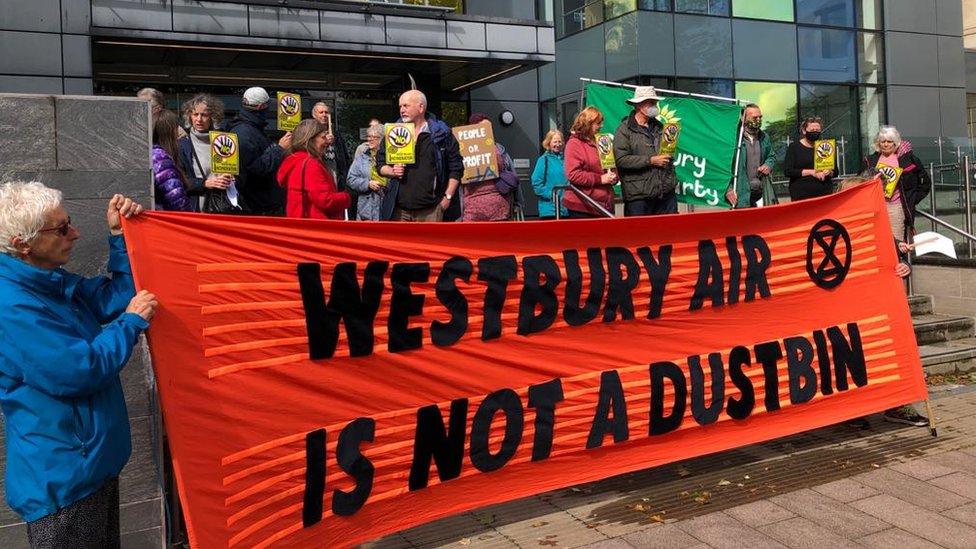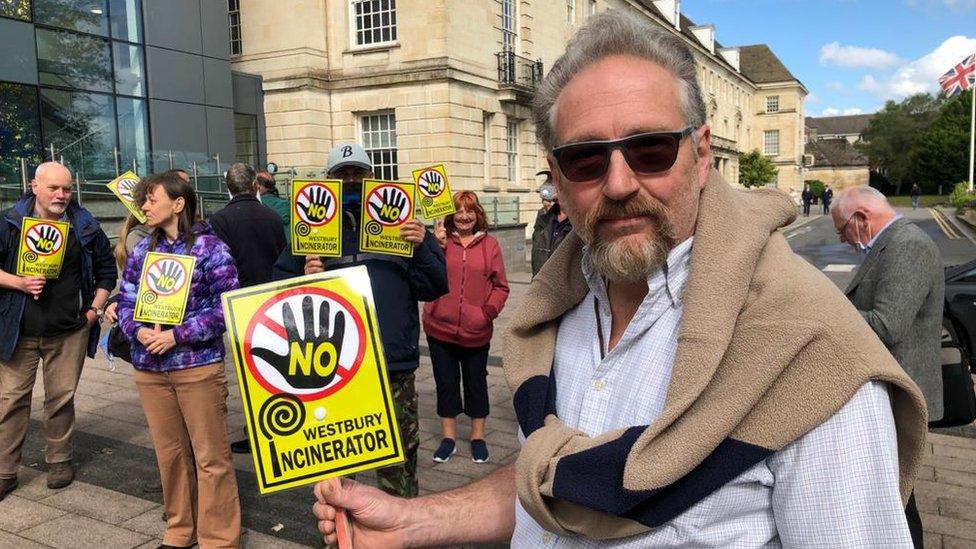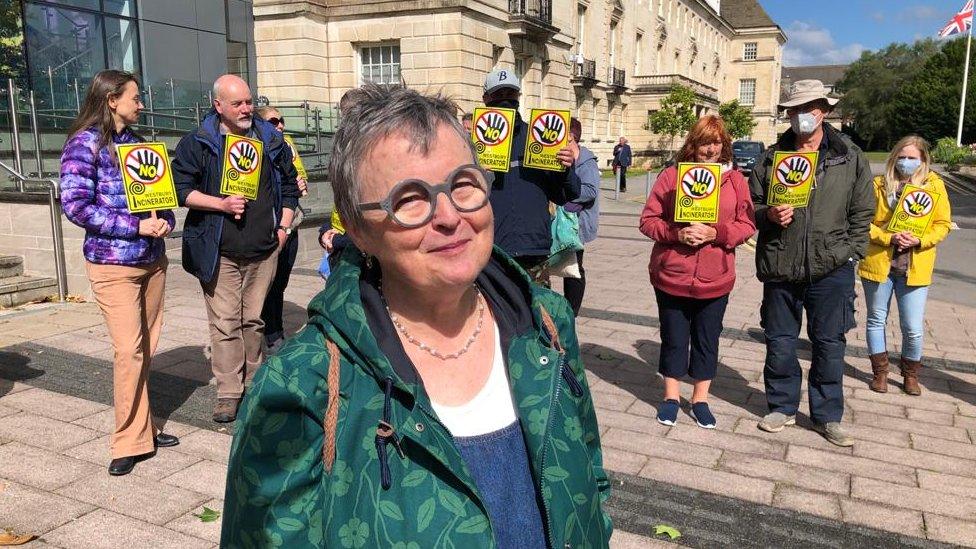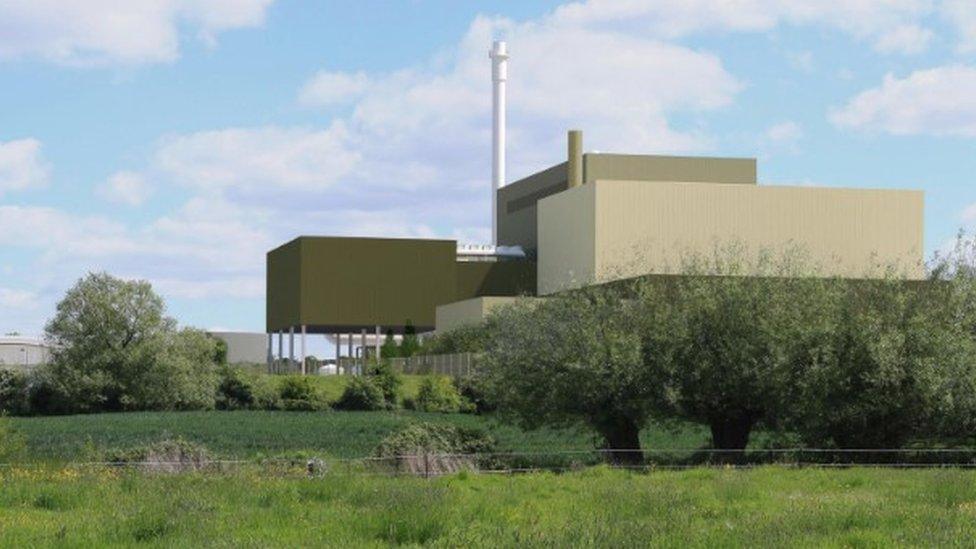Revised Westbury incinerator plan gains planning approval
- Published

Protesters gathered outside the County Hall ahead of the meeting
Revised plans to build a controversial £200m waste-to-energy incinerator in Wiltshire have been given the go ahead.
Councillors voted seven to four earlier to approve the Westbury development described by South Wiltshire MP Andrew Murrison as "hated" and "detested".
The meeting was live-streamed for the 1,900 objectors to follow proceedings.
Northacre Renewable Energy said its incinerator would use the latest technology, save material from landfill and help cut greenhouse gas emissions.
Once built, a permit will still be needed from the Environment Agency before the incinerator can be used.
The company was previously given permission to build an incinerator on the site in 2019, but it then submitted an alteration to the original plan.
Northacre Renewable Energy Limited proposed a move from a gasification plant (a process that converts bio-mass or fossil fuels into gases) to one using "moving grate combustion".
The incinerator plan was met with opposition from residents and a number of protesters who gathered outside the County Hall ahead of the meeting.

Protester and Westbury resident Dan Gmaj said it was an unenviable job for councillors to have to make such a big decision, but it was an important one

Jane Hall was among the protesters outside County Hall who were opposed to the plan which they said was more polluting than the plan previously submitted
Councillor Matthew Dean said the level of official opposition registered to the project was the equivalent of one in 10 Westbury residents contacting the council.
South Wiltshire MP Andrew Murrison, external said the combustion plant would be more environmentally damaging than the plant previously approved by the council.
"I'm trying to think of another issue since the Westbury Cement Works that has filled my mailbag as this one has," he told the meeting.
"This thing is massively unwanted, it will contribute to this council's contribution to carbon at a time when we must be reducing it.
"It is detested and hated by the people of Westbury and much further afield...
"You must refuse this application."
The energy company's director Alex Young said: "This material would turn a significant proportion of the region's commercial and industrial residual waste into low carbon energy.
"This material would otherwise be sent to landfill or transported to similar facilities in UK or Europe.
"Our proposals will reduce greenhouse gas emissions by 58,000 tonnes a year of CO2 when compared to landfill."
He said its construction would involve the latest technology and operating techniques too.
Related topics
- Published6 June 2021
